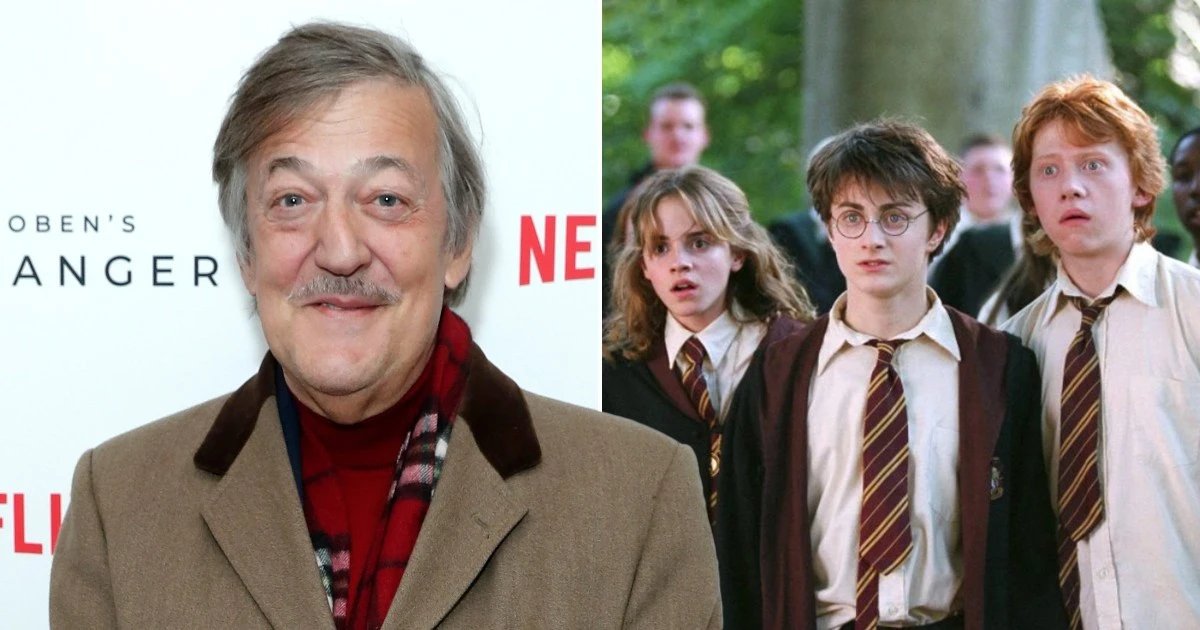Actor Stephen Fry says his voice was stolen from the Harry Potter audiobooks and replicated by AI—and warns this is just the beginning
Actor Stephen Fry says his voice was stolen from the Harry Potter audiobooks and replicated by AI—and warns this is just the beginning


AI may be a buzzword on Wall Street, but on the West Coast it’s at the center of Hollywood’s biggest labor dispute in more than 50 years. Among those warning about the technology’s potential to cause harm is British actor and author Stephen Fry, who told an audience at the CogX Festival in London on Thursday about his personal experience of having his identity digitally cloned without his permission.
“I’m a proud member of [actors’ union SAG-AFTRA], as you know we’ve been on strike for three months now. And one of the burning issues is AI,” he said.
Actors’ union SAG-AFTRA, which has around 160,000 members, went on strike last month over pay, working conditions, and concerns related to the use of AI in the film industry. It joined the Writers Guild of America—a union representing thousands of Hollywood writers—which went on strike in early May, marking the industry’s biggest shutdown in more than six decades.
A key sticking point for actors on strike is the possibility that studios could use AI to make digitally replicate their image without compensating them fairly for using their likeness.
Speaking at a news conference as the strike was announced, union president Fran Drescher said AI “poses an existential threat” to creative industries, and said actors needed protection from having “their identity and talent exploited without consent and pay.”
During his speech at CogX Festival on Thursday, Fry played a clip to the audience of an AI system mimicking his voice to narrate a historical documentary.
“I said not one word of that—it was a machine. Yes, it shocked me,” he said. “They used my reading of the seven volumes of the Harry Potter books, and from that dataset an AI of my voice was created and it made that new narration.”
Fry—who has appeared in movies including Gosford Park, V for Vendetta, and The Hitchhiker’s Guide to the Galaxy—is the narrator of the British Harry Potter audiobooks, while actor Jim Dale narrated the American version of the series.
“What you heard was not the result of a mash up, this is from a flexible artificial voice, where the words are modulated to fit the meaning of each sentence,” Fry told the audience at CogX Festival on Thursday.
“It could therefore have me read anything from a call to storm parliament to hard porn, all without my knowledge and without my permission. And this, what you just heard, was done without my knowledge. So I heard about this, I sent it to my agents on both sides of the Atlantic, and they went ballistic—they had no idea such a thing was possible.”
Fry added that when he discovered his voice was being used in projects without his consent, he saw it as just the beginning of an emerging threat to creative talent, warning his angry agents: “You ain’t seen nothing yet.” “This is audio,” he said he told them. “It won’t be long until full deepfake videos are just as convincing.”
As AI technology has advanced, doctored footage of celebrities and world leaders—known as deepfakes—has been circulating with increasing frequency, prompting warnings from experts about artificial intelligence risks. Fry warned on Thursday that those technologies only had further to go.
“We have to think about [AI] like the first automobile: impressive but not the finished article,” he said, noting that when cars were invented no one could have envisioned how widespread they are today.
“Tech is not a noun, it is a verb, it is always moving,” he said. “What we have now is not what will be. When it comes to AI models, what we have now will advance at a faster rate than any technology we have ever seen. One thing we can all agree on: it’s a f***ing weird time to be alive.”
Not the first
Fry isn’t the only famous actor to publicly vocalize their concerns about AI and its place in the film industry.
At a U.K. rally held in support of the SAG-AFTRA strike over the summer, Emmy-winning Succession star Brian Cox shared an anecdote about a friend in the industry who had been told “in no uncertain terms” that a studio would keep his image and do what they liked with it.
“That is a completely unacceptable position,” Cox said. “And that is the position that we should be really fighting against, because that is the worst aspect. The wages are one thing, but the worst aspect is the whole idea of AI and what AI can do to us.”
Oscar winner Matthew McConaughey told Salesforce CEO Marc Benioff during a panel event at this year’s Dreamforce conference that he had concerns about the rise of AI in Hollywood.
“We have a real chance, if we are irresponsible, of cannibalizing ourselves and creating this digital god that we’ll bow to, and we’ll all of a sudden become tools of this tool,” he said.
Meanwhile, Star Trek and Mission Impossible star Simon Pegg has called AI “worrying” for actors.
“We’re looking at being replaced in some ways,” he said at the rally in London in July. “We have to be compensated and we have to have some say in how [our image is] used. I don’t want to turn up in an advert for something I disagree with… I want to be able to hang on to my image, and voice, and know where it’s going.”
A spokesperson for the Alliance of Motion Picture and Television Producers (AMPTP), the entertainment industry’s official collective bargaining representative, was not available for comment when contacted by Fortune.